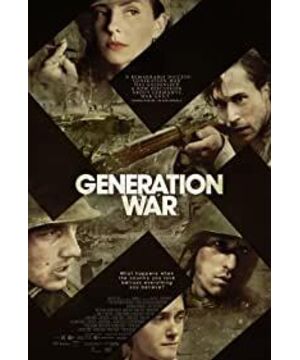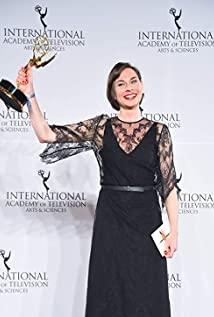The overall production of this drama is very sophisticated and rigorous, but I don't like the translation of the Chinese drama title personally.
There are five protagonists in this play, three men and two women, who strung together five narrative threads, showing the helplessness and tragedy of individuals under the torrent of the times. One of the five contexts is indispensable. There are not only the choices and suffering of male war heroes on the front line, the struggle and sacrifice of male Jewish people when they are persecuted, but also the growth and dedication of female medical staff in the rear. Female stars deal with senior officials and soldiers when they are involved of despair and helplessness.
The original German drama is called "Unsere Mütter, unsere Väter", where Mütter & Väter are mother and father respectively, which can be literally translated as "Our Mother, Our Father" or "Our Parents".
The British version of the play is called "Our Elder Generation", which means "our ancestors", and the gender awareness is diluted and simplified.
The Chinese play title directly translates it as "Our Fathers". The term "parents" is a common vocabulary in the traditional Chinese system, and its usage is mostly formal and profound, which fits the play quite emotionally. However, this term has a single gender consciousness, and the female perspective is absent in the discourse field. Women have been weakened from the indispensable protagonists in this play to second supporting roles or even accessories under the domination of male power. The word "Our Fathers" is easily reminiscent of heroic and mighty male heroes, but ignores the proud and unyielding women. Women are undoubtedly the secondary reinforcement of the inherent gender concept.
Owens writes in "The Discourse of the Other: Feminists and Postmodernism": "Images of women have always abounded. But, at the time of representation, women have been portrayed in mainstream culture as A kind of absence." This sentence is very appropriate to explain the lack of female perspective in the Chinese translation of the play. This everyday expression constitutes and reinforces inherent thinking patterns and stereotypes, which dismantle the authority, power, and further exclude women from the public sphere in women's discourse.
Hopefully, we can get out of our habit of thinking and revert to a public narrative strategy of gender equality.
View more about Generation War reviews











